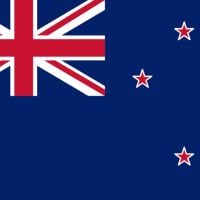Deadline: 6-Oct-22
The National Cancer Institute (NCI)has launched a Funding Opportunity Announcement (FOA), to support the program “Cancer Target Discovery and Development.
CTD2 is focused on efforts that advance cancer research by bridging the knowledge gap between the large volumes of comprehensive molecular characterizations of many cancer types and studies of the underlying etiology of cancer development, progression, and/or metastasis.
The primary purpose of CTD2 is to advance the following areas:
- Improving the understanding of how mutations in cancer-associated genes affect the protein activity (e.g., gain-of-function, loss-of-function, or neomorphic function) within the cellular pathway(s) they are part of and the cellular changes that result within the context of various tumors and the microenvironment;
- Identifying new molecular targets with the goal to understand their wiring mechanisms and how overcome innate and/or acquired resistance to therapies, particularly clinical resistance related to inter- and intra- tumor heterogeneity; and
- Developing efficient strategies to identify appropriate multiple targets and optimal combination of perturbagens (chemical or biological;
- Immunotherapeutics being a prime example of the latter) with the potential to eliminate all cancer cells, despite their clonal heterogeneity and their surrounding microenvironment.
Areas
The proposed projects should address at a minimum two of the three research areas defined below:
- Area 1. Improving understanding of gene functions in pathways and cellular wiring important in cancer initiation, progression, and metastasis within context of a few human tumors;
- Area 2. Identifying and confirming biological candidate targets, and possibly associated predictive markers, involved in cancer etiology which are amenable to modulation; use the data to predict outcome of combination treatment through use of decision trees and/or artificial intelligence; and
- Area 3. Identifying perturbagens (chemical or biological; immunotherapeutics being a prime example of the latter) that modulate a target’s function within the context of the specific cancer cell type(s). Particularly desirable will be search for perturbagen combination capable of minimizing or eliminating resistance to therapies.
Funding Information
- Funds Available and Anticipated Number of Awards
- NCI intends to commit $12 million in total costs in FY 2017 to fund up to 12 awards. The number of awards is contingent upon NCI appropriations and the submission of a sufficient number of meritorious applications. It is expected that funds will be available in subsequent years, but the funding and the amounts will depend on annual appropriations.
- Award Budget
- Budgets up to $750,000 direct costs per year may be requested.
- Award Project Period
- A maximum project period of up to 5 years may be requested.
Eligibility Criteria
- Higher Education Institutions
-
- Public/State Controlled Institutions of Higher Education
- Private Institutions of Higher Education
- The following types of Higher Education Institutions are always encouraged to apply for NIH support as Public or Private Institutions of Higher Education:
- Hispanic-serving Institutions
- Historically Black Colleges and Universities (HBCUs)
- Tribally Controlled Colleges and Universities (TCCUs)
- Alaska Native and Native Hawaiian Serving Institutions
- Asian American Native American Pacific Islander Serving Institutions (AANAPISIs)
- Nonprofits Other Than Institutions of Higher Education
- Nonprofits with 501(c)(3) IRS Status (Other than Institutions of Higher Education)
- Nonprofits without 501(c)(3) IRS Status (Other than Institutions of Higher Education)
- Federal Governments
- Eligible Agencies of the Federal Government
- U.S. Territory or Possession
- Other
- Independent School Districts
- Public Housing Authorities/Indian Housing Authorities
- Native American Tribal Organizations (other than Federally recognized tribal governments)
- Faith-based or Community-based Organizations
- Regional Organizations
- Foreign Institutions
- Non-domestic (non-U.S.) Entities (Foreign Institutions) are not eligible to apply.
- Non-domestic (non-U.S.) components of U.S. Organizations are not eligible to apply.
- Foreign components, as defined in the NIH Grants Policy Statement, are allowed.
For more information, visit https://www.grants.gov/web/grants/view-opportunity.html?oppId=334676







































